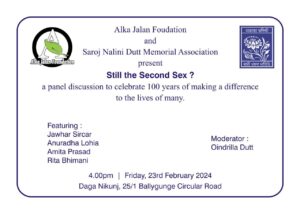 In June 2014, the Human Rights Center at the University of California, Berkeley School of Law released Bearing Witness at the International Criminal Court – Women Who Testify at the ICC Against War Criminals[1], the first empirical study to report the views of ICC witnesses, both victims and expert witnesses, who testified in the Court’s two cases against Congolese warlords Thomas Lubanga Dyilo and Germain Katanga. Both these trials took place at the ICC’s chambers in The Hague and concerned serious international crimes that occurred in the Democratic Republic of Congo between July 2002 and December 2003. A total of 123 witnesses testified in both trials. Here, the survey examined the attitudes and opinions of 109 or 89% of them.
In June 2014, the Human Rights Center at the University of California, Berkeley School of Law released Bearing Witness at the International Criminal Court – Women Who Testify at the ICC Against War Criminals[1], the first empirical study to report the views of ICC witnesses, both victims and expert witnesses, who testified in the Court’s two cases against Congolese warlords Thomas Lubanga Dyilo and Germain Katanga. Both these trials took place at the ICC’s chambers in The Hague and concerned serious international crimes that occurred in the Democratic Republic of Congo between July 2002 and December 2003. A total of 123 witnesses testified in both trials. Here, the survey examined the attitudes and opinions of 109 or 89% of them.
From its outset, the ICC’s mandate has included assisting and protecting witnesses who have survived conflict-related sexual violence, genocide, war crimes, or crimes against humanity, both difficult and expensive tasks. Here, the main question that the interview survey sought to address was: Is the International Criminal Court meeting the diverse needs of witnesses who participate in ICC trials? To answer this, its specific objectives were to discover witnesses’ views about their experiences testifying in the Lubanga and Katanga trials; to understand the needs and concerns of witnesses from the pre-trial to post-trial phases; and to identify ways in which the ICC’s Victims and Witnesses Unit (VWU), other ICC organs, and the Assembly of States Parties can improve witness interaction with the Court.
The Human Rights Center staff developed three questionnaires which were administered to ICC witnesses at interviews that took place between January 24, 2009 and May 7, 2012 at three specific times: (1) prior to testifying (104 interviews); (2) soon after testifying (109); and (3) six to twelve months after testifying (32). In spite of having far to travel, often from central Africa to The Hague, and sometimes having to wait to testify for lengthy periods before giving evidence and then having to face the accused and their lawyers, most witnesses reported positive experiences with the Court.
In describing their feelings about participating in the trials on a scale of 1 to 5 (least to most positive), women reported an average rating of 4.6, and men 4.4. The majority (96 percent of women and 93 percent of men) said they were glad they agreed to testify, and indicated they would be willing to serve as a witness again. Indeed, witnesses whose ages ranged from 18 to more than 60 years of age felt they had a duty to testify as a way of establishing the truth of the events that had occurred. Because most witnesses had no prior experience with courts, either at home or abroad, they said that witness orientation was critical for their well-being. To protect themselves, the vast majority of witnesses used some form of safeguarding measures like pseudonyms and facial and/or voice distortion during the trials. These assisted in diminishing their feelings of anxiety. Therefore, witnesses were, on the whole, satisfied with safety and security procedures with women reporting slightly higher ratings than men although the Report indicates that this needs to be closely monitored as the number of witnesses increases as the amount of cases coming before the Court escalates.
The twenty females who, in this study, numbered only a quarter of witnesses, provided almost all the testimony on sexual violence. Given that only 60% of women replied affirmatively when asked whether they thought their testimony helped establish the truth or would help achieve justice, compared with almost 80 percent of men, further investigation is needed into why this imbalance exists between women and men testifying about sexual crimes and into why the women witnesses perceive their testimony to be less efficacious.
For the future, the survey has highlighted some areas that require additional research based on the Report’s recommendations, especially relating to the complex issue of long-term witness protection. However, as the Director of the Atrocity Response Program at the Human Rights Center, Stephen Smith Cody and Robin Mejia, a researcher at the same Centre, conclude in their article How Do Witnesses/Women Feel Testifying at the ICC, Against Accused War Criminals?[2], it has shown that even what can be the very intimidating act of testifying against those who have committed the most heinous crimes before an international tribunal, when done properly, ‘can be a safe and even empowering experience’.
[1] http://www.law.berkeley.edu/files/HRC/Bearing-WitnessFINAL%281%29.pdf
[2] http://beyondthehague.com/2014/06/28/how-do-witnesses-feel-testifying-against-accused-war-criminals/


